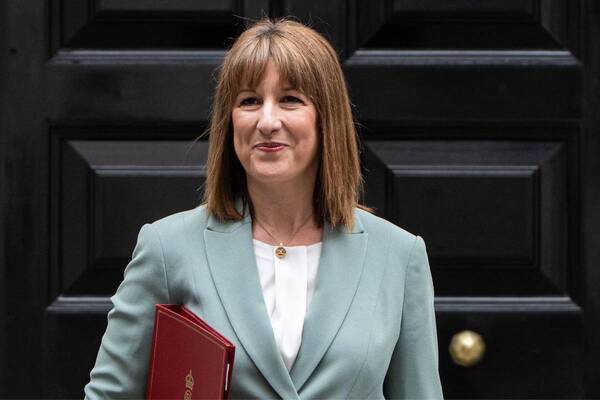Putting local climate action at the heart of devolution
In the wake of the local elections and with a general election looming, the UK stands at a critical juncture in its Net Zero journey.
As the recent High Court ruling underscored, the government’s current climate strategy is falling short of its legally-binding ambitions. To get back on track, Westminster must recognise that the road to a cleaner, healthier and more prosperous future runs through town halls, not Whitehall.
We have spent the first half of the year talking to our members, key stakeholders and partners about their priorities for the next government and how they want to be supported to accelerate local climate action through a new devolution settlement. It will come as no surprise to hear that they want to see bold action from the government to give them the powers and funding they need to unlock local Net Zero. Local authorities have consistently shown ambition and leadership on climate action, but in the absence of this they face mounting barriers to delivering on their plans.
The rising tide of misinformation
One of the most insidious threats is the alarming spread of local climate misinformation, which has seeped into mainstream discourse — one MP attacked measures aimed at providing residents with easy access to local amenities as an “international socialist concept” — and even government rhetoric. Meanwhile, last month a minister targeted Lewes District Council with false narratives about “15 minute cities”.
These misinformation campaigns are part of a broader “culture war” that threatens to derail critical local measures. In Oxford, conspiracy theories and misinformation led to local leaders receiving death threats for implementing traffic filters to cut emissions and local congestion.
Despite these headwinds, local authorities should take heart in the fact that public support for ambitious climate action remains robust. Polling around the local elections by the Energy & Climate Intelligence Unit (ECIU) shows that 76% of voters backed the UK’s Net Zero target, including majorities of Conservative and Reform UK voters. The old adage is still true for climate action: the silent majority is being drowned out by the vocal minority.
However, that support alone is not enough to overcome the systemic obstacles hampering councils, particularly in the crucial tasks of delivering local energy and warm homes.
The future is local area energy planning
In the energy sector, the government’s effective ban on onshore wind and lack of clear support for Local Area Energy Plans (LAEPs) in England are stifling progress. Analysis by UK Research & Innovation (UKRI) and PricewaterhouseCoopers (PwC) found that delivering a locally-led Net Zero transition could reduce system costs by over two-thirds and almost double consumer bill savings compared to a one-size-fits-all national approach. And, as Energy Systems Catapult has repeatedly made clear, local area energy plans are a critical component of the transition. LAEPs can benefit local authorities and residents by identifying the most cost-effective pathway to reach Net Zero emissions in their area while delivering potential economic and social co-benefits while improving air quality and enhancing energy security.
The devolved governments in Wales and Scotland have already recognised this immense potential, with Wales, in particular, already in the process of rolling out LAEPs nationwide to inform a cohesive National Energy Plan.
In England, some trailblazing local authorities are leading the way on showing what is possible, with Greater Manchester Combined Authority introducing a pioneering Local Energy Market, using LAEPs across its ten boroughs to balance decentralised renewables, storage, and smart demand to meet the region’s science-based 2038 Net Zero target. The project brings together over a dozen partners and has appointed experts to support LAEP development. Others like Somerset, Calderdale and London’s councils working with the Greater London Authority are also leading the way in local energy planning, showing there is no urban or rural divide when it comes to being ambitious about energy and through UK100’s partnerships with our members we will continue to support them by highlighting best practice.
But to truly unlock the full benefits of local energy leadership, Westminster must follow the example set in Cardiff. Alongside lifting the onshore wind ban, it should provide support and resources for every English local authority to develop a LAEP as part of a coordinated national framework. The analysis from UKRI, PwC and Energy Systems Catapult suggests that an investment of £40m could help unlock savings of up to £140bn compared to a centralised approach to energy.
Warm homes
An Englishman’s home is still their castle, but increasingly, they’re sitting in it shivering as they can’t afford the heating bills.
To maximise the potential of cleaner, more reliable homegrown local energy, we must minimise energy wastage. The cheapest and cleanest energy is the energy we don’t use. The only problem is that the UK has some of the most notoriously draughty homes in Europe.
Progress on bolstering energy efficiency has never recovered from the drastic cuts enacted in 2013 as part of an all-too-familiar push to “cut the green crap”. A decade ago, government schemes supported 2.3 million home upgrades; by 2021, that number had plummeted to fewer than 100,000. While recent initiatives like the Social Housing Decarbonisation Fund and Great British Insulation Scheme are welcome, at the current rate of delivery it will take decades to reach every home that needs to be retrofitted. Their impact is blunted by outdated Energy Performance Certification (EPC) methodologies and the short-term, competitive nature of the funding made available.
Despite these hurdles, councils like Wiltshire are forging ahead with ambitious retrofit programmes. Wiltshire’s Housing and Energy Efficiency Programme (HEEP) aims to upgrade the energy efficiency of all the authority’s 5,000 council homes within a decade, reducing carbon emissions by 14,000 tonnes a year. The £50 million scheme, launched in 2021, is already delivering deep retrofits and upskilling council staff to support wider community improvements.
Wiltshire is just one example that highlights a pattern we have seen over and over again; while national-led energy efficiency schemes have been branded a “failure” it is the local authority-led schemes that have delivered results. Local leaders are the best placed to deliver for their communities, with their communities and we’ve seen where some powers and funding have been devolved, results quickly follow. Just look at Greater Manchester, West Yorkshire and Leeds which have locally shaped retrofit programmes cutting bills and bringing communities together.
To support this vital work, the government must reform EPCs, the current system is creating perverse outcomes that can slow down low carbon heating upgrades rather than speeding them up, devolve greater planning powers, retract regressive restrictions like the December 2023 Written Ministerial Statement curtailing local house building standards, and create a joined-up, long-term local energy efficiency fund based on local need rather than competition.
Local-national partnerships for long-term success
It’s not local or national that’ll do it, but a genuine partnership. More broadly, the current patchwork of fragmented funding pots and lack of coordination between central and local government are among the biggest overarching challenges holding back progress. The National Audit Office (NAO) and Climate Change Committee (CCC) have repeatedly called for a comprehensive Net Zero delivery framework to align priorities and remove barriers. To answer this call, UK100 is urging the next government to establish a statutory Local Net Zero Delivery Authority, complete with an executive board of local leaders and a desiccated unit to provide guidance, assess performance, and drive local delivery.
Whitehall may control the purse strings and hold the key to unlocking local Net Zero potential, but councils themselves have the tools they need to build resilience against the rising tide of misinformation and unite communities behind local climate action. Many local authorities are finding success with deliberative engagement like citizens’ assemblies and juries, which give residents a genuine voice in co-designing the transition in their areas. The Local Climate Engagement programme, created by UK100 and Involve, aims to provide a model and guidance to help local leaders shift away from one-way consultations towards a participatory approach.
We also know from talking to Councils like Portsmouth and organisations like the Energy Saving Trust, just how important access to impartial, trusted and local advice is to supporting people to make the right choices when it comes to energy and domestic Net Zero measures. There is an urgent need in England to follow the example of Scotland, Wales and Northern Ireland and adopt a nationally led, but locally delivered approach to advice to drive the take-up of everything from heat pumps to insulation.
Local climate action at the ballot box
Politics is becoming increasingly polarised, and years of Net Zero consensus and climate action risks being sacrificed for short-term headlines. But this lose-lose strategy is not paying electoral dividends. In the coming general election, parties of all stripes should recognise that empowering local climate leadership is not only good policy, but good politics. The Greens’ record performance in the 2024 locals and the Lib Dems landing second place shows voters are hungry for action. Meanwhile, against this backdrop, the Conservative’s Tees Valley Mayor Ben Houchen, who made green investment central to his election campaign, was a rare bright spot for the government, significantly outperforming the Conservative’s national slump. It just goes to show, if you can hold your nerve and cut through the noise, local climate action is a winning playbook. We’re calling on the national parties to recognise that as they put the finishing touches on their manifestos ahead of polling day.
The path to Net Zero runs through Britain’s cities, towns and counties. But the pace that we move along is set by national government. By dismantling the barriers holding back local authorities and devolving the powers and resources they need to accelerate the transition, the next government can build a cleaner, greener, and more prosperous nation from the ground up. With the local elections behind us and the general election on our doorstep, it’s clear that empowered local climate leadership must be at the heart of Britain’s Net Zero future. There is no time for dangerous delays, we cannot afford the forces of misinformation, culture wars and inaction take hold. The next government must act boldly and urgently.
Christopher Hammond is a former council leader and the chief executive of UK100
Our cities, placemaking, living and the net zero challenge programme is supported by E.ON, Equans and Mears



